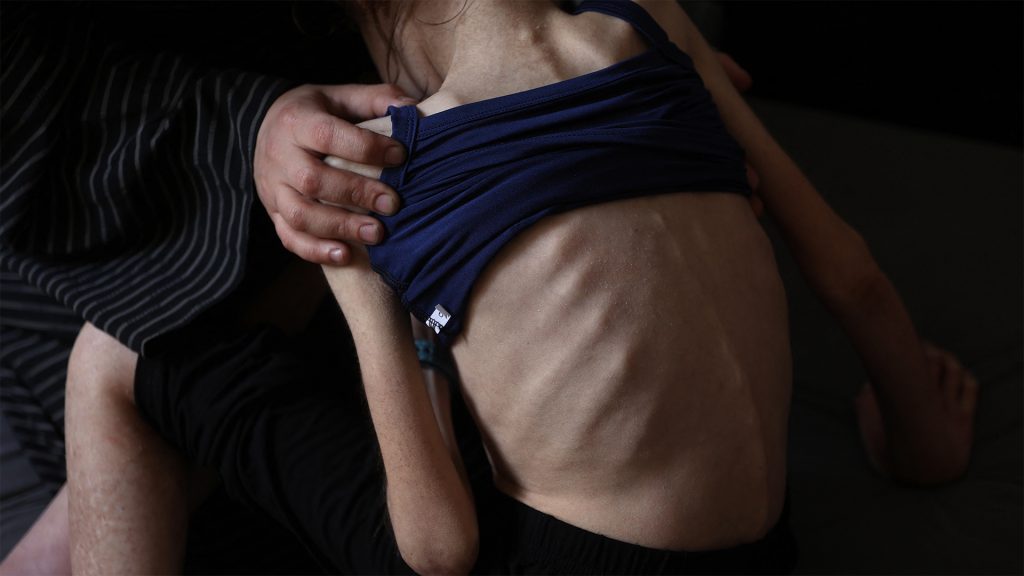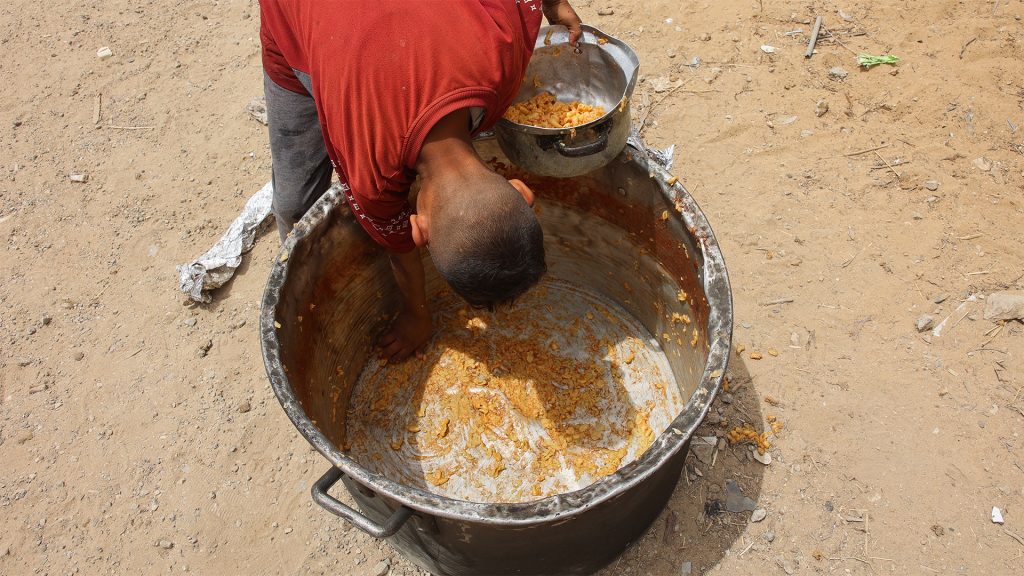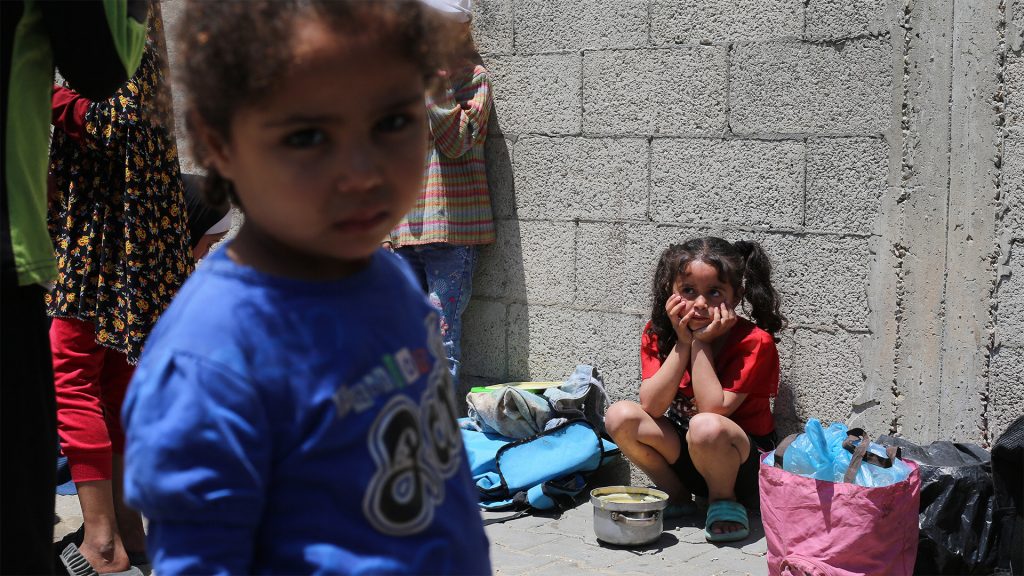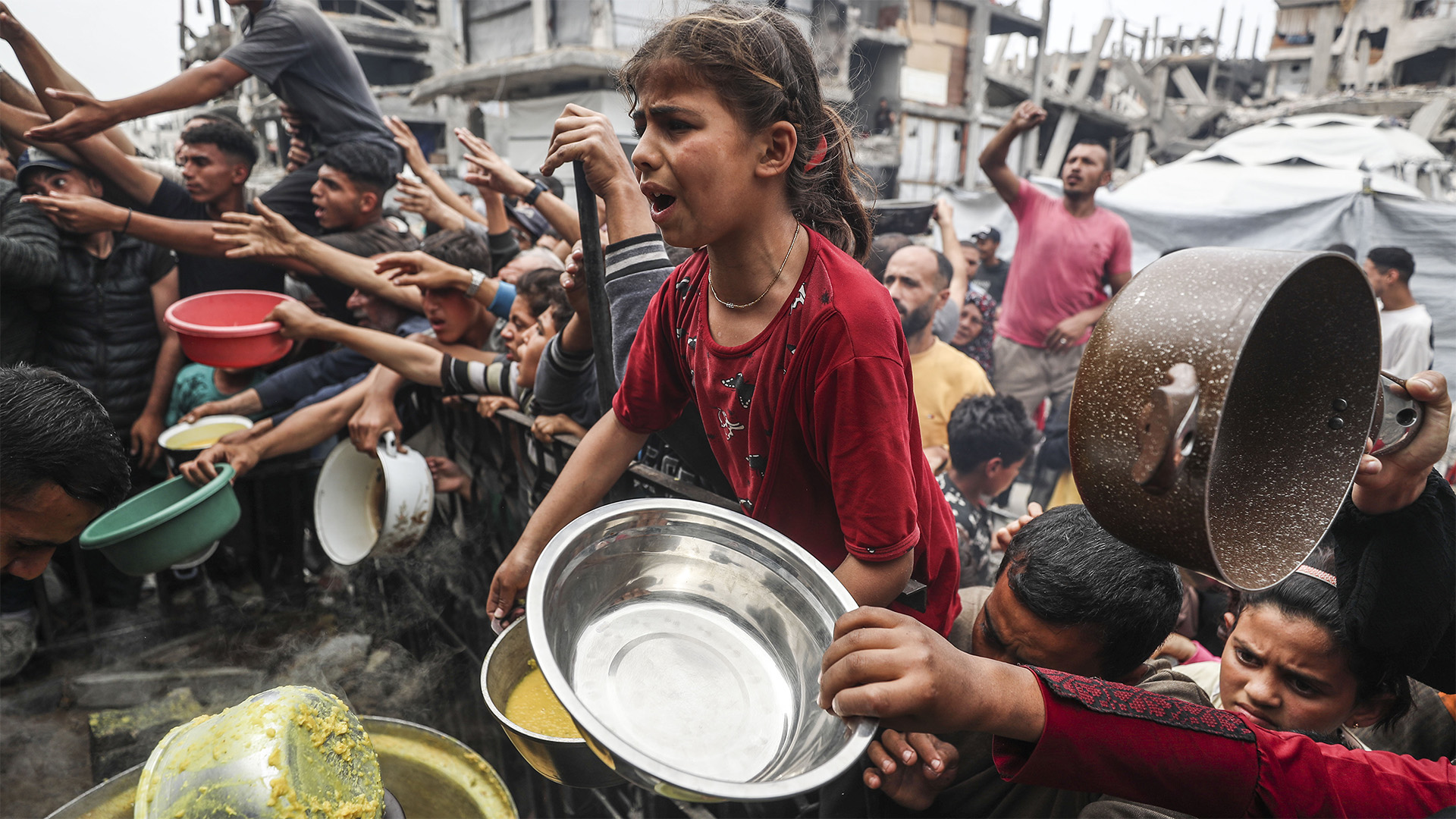In relative terms, Ashraf al Masri, a Gaza driver whom I have known for more than 20 years, has been lucky. Most of his immediate family, who are currently crowded into a tent in the coastal and supposedly “safe zone” of al Mawasi, are still alive. He doubts it will remain that way for long.
His family does not support Hamas but its moderate rival, Fatah. But that allegiance does not spare them from this war, and its effects. Two of Ashraf’s infant grandchildren, Majdi and Mohammed, one a week old, and the other a month old, died this year in Deir El Balah hospital. Their mother was so weakened with malnutrition that she was unable to feed them.
The family home is in Gaza’s northernmost town of Beit Hanoun, and they left under Israeli orders at the beginning of the war. One of his sons was able to return during the all-too-brief ceasefire that started in January. He found that it had been severely damaged by tank fire.
He sent pictures of the ruins. Several rooms were covered in graffiti left by Israeli soldiers, most of it in Hebrew. In English, someone had written the words: “Fuck Palestine”.
On Wednesday, the Israeli government spokesman David Mencer insisted on the Radio 4’s Today programme that there was food in Gaza. Perhaps. But only at very high black market prices.

Ashraf had reeled them off for me by telephone the previous day: a bag of onions which cost seven shekels (£1.47) before the war now 100 shekels (£21). Flour, when it is available, which he says it’s not at present, can cost up to £42 a bag. A kilo of sugar now costs £21. The overwhelming majority of Gazans can simply not afford to pay these prices.
He pointed to the Israeli-imposed aid blockade which started on March 2 and prime minister Benjamin Netanyahu’s order of a major fresh assault on Gaza once Donald Trump’s visit to the Gulf finishes this week. “If the Israeli army don’t kill us,” he said, “the hunger will.”
This is just one little glimpse into what the UN’s humanitarian chief Tom Fletcher this week rightly called a “21st-century atrocity”. It’s an unfolding catastrophe likely to echo down the ages, in which Fletcher said Israel was “unashamedly and deliberately imposing inhumane conditions” on Gazan civilians, who now face the risk of famine, even if they escape bombardment.
Fletcher pointed out that, for over ten weeks, no food, water, tents or medicines had entered Gaza. He challenged Israel to prevent a coming “genocide”.
It’s hard to believe that it is now 14 months since Chuck Schumer, the (Jewish) ranking US Senate Democrat, warned that Netanyahu was at risk of turning Israel into a “pariah”. Since then, the Palestinian death toll has swelled to around 53,000.
Many commentators have shrunk from describing the mass deaths of men, women and children in Gaza as “genocidal”. But given that the term is regularly used by Israeli politicians about the atrocities committed by Hamas on October 7, when they killed 1,200 Israelis and took another 251 hostage, that reticence is becoming hard to defend.

What is striking is the inaction, beyond some ritual hand-wringing, of Israel’s western allies in the face of the carnage, which Netanyahu now proposes to escalate. As Fletcher told the UN Security Council in New York, “future generations” would “hold us in this chamber to account. And if we have not seriously done all we can, we should fear that judgement.”
It was predictable that Donald Trump would continue – for now at least – to supply Israel with all the arms it needs, including the 2,000lb bombs that have flattened so much of Gaza. But Europe is hardly immune.
It’s true that Emmanuel Macron described Israel’s aid blockade as “shameful”, incurring the truly absurd charge from Netanyahu that he was backing Hamas. Yet the new German chancellor Friedrich Merz has not repeated his eve-of-election declaration that Netanyahu would be welcome in Germany. He made that remark despite the International Criminal Court warrants issued against Netanyahu, on charges that include using starvation as a weapon of war. Merz’s invitation appears to violate German’s legal obligations as an ICC signatory.
Read more: Misan Harriman: A lens on a world in protest
For its part, Britain has continued to supply arms to Israel. The total of UK arms supplies is very small, but Oxfam and others are bringing a High Court case in the hope of stopping further arms sales, including parts for F35 fighter bombers. A blanket ban would have a potent symbolic effect.
But these examples only highlight the current international apathy in the face of wholesale slaughter. There is also no serious challenge to Netanyahu’s two baseless claims: that despite all evidence to the contrary, the Israeli hostages can only be returned by force rather than by implementing the January peace deal; and that Hamas can be extinguished by continuing the onslaught. As US secretary of state Antony Blinken pointed out, in the course of this war, Hamas has recruited almost as many young fighters as it has lost.

Every diplomat knows that Netanyahu’s real reason for continuing his “forever war” is to hold his coalition government together, including the extremist Itamar Ben Gvir and Bezalel Smotrich. They are both eager to empty Gaza of its people and rebuild Israeli settlements there.
So long as Netanyahu remains in office, he is able to dodge the consequences both of his ongoing criminal trial on three corruption charges (which he denies) and of a commission of enquiry into the abject Israeli failures which preceded Hamas’s attack on October 7.
They know, too, that a majority of Israelis (68 per cent in the most recent poll) want the 58 remaining hostages – alive and dead – returned, at the cost of ending the war. Many thousands of Israelis repeatedly take to the streets to call for an end to war. Foreign governments sit on their hands.
Perhaps most enraging of all is that all this was clear months ago and that Biden failed to use the US’s huge leverage to halt the war. If the wildly inconsistent and unpredictable Trump now wants to call a halt, as he has sometimes hinted, then of course he could blame Biden for just that failure.
While it’s certain that he’s the only one who can, it’s far from certain right now that he will stop this killing. But either way, as Ashraf told me when I spoke to him on the phone: “All Gaza is waiting for Mr Trump.”
Donald Macintyre is a British journalist who was Jerusalem bureau chief for the Independent between 2004-12



